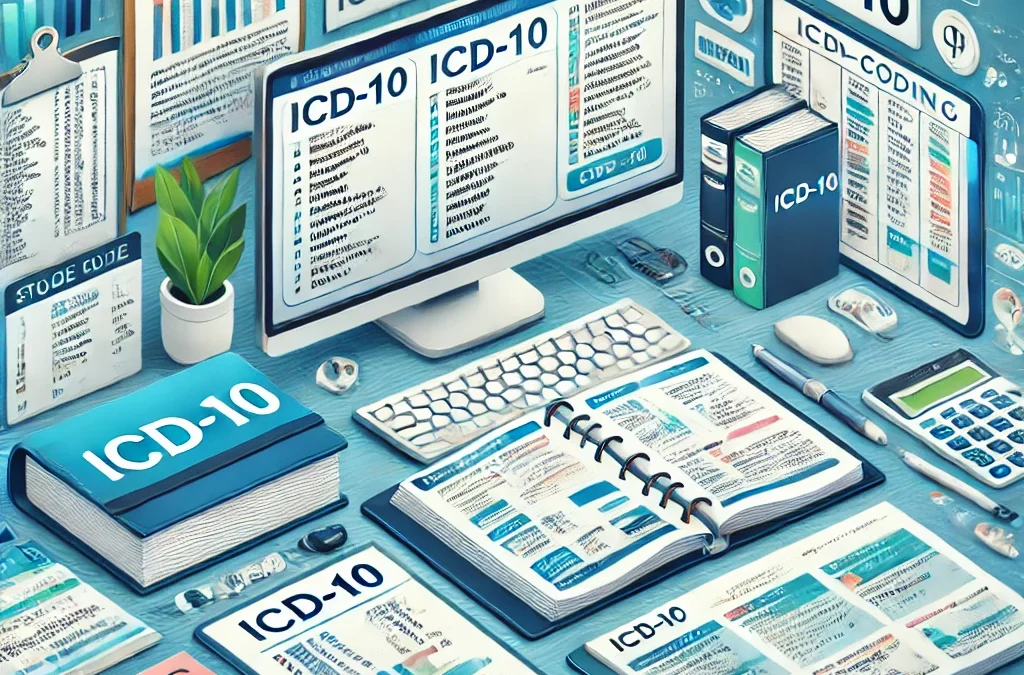Study ICD-10 for Healthcare Coding
The International Classification of Diseases, 10th Revision (ICD-10), is the global standard for recording diagnoses and health conditions. In this guide, we’ll explore the importance of ICD-10, how to study it effectively, and its role in healthcare coding.
Introduction to ICD-10 Coding System
ICD-10 is used by healthcare professionals to document patient diagnoses and medical conditions. This coding system ensures consistency and accuracy in billing, insurance claims, and data analysis.
What is ICD-10 and Why It’s Important?
ICD-10 enables healthcare providers to classify diseases in a structured way, ensuring accurate communication between hospitals, clinics, and insurance companies.
The Difference Between ICD-9 and ICD-10
ICD-10 is more detailed than its predecessor, ICD-9. It offers expanded code sets and allows for more specific diagnoses, improving healthcare data accuracy.
Key Features of ICD-10 Codes
ICD-10 codes provide detailed information about diseases, symptoms, and external causes of injury. This helps in delivering better patient care and optimizing billing processes.
Structure of ICD-10 Codes
Code Categories
ICD-10 codes are divided into chapters based on body systems and conditions, such as infectious diseases, circulatory disorders, and respiratory conditions.
Alphanumeric Structure
ICD-10 codes follow an alphanumeric structure, starting with a letter followed by numbers. This structure allows for a vast number of unique codes.
Extensions for Detailed Coding
Some ICD-10 codes include extensions to provide more specificity, such as the side of the body affected or the stage of a disease.
How to Effectively Study ICD-10 Codes
Breaking down codes by chapters and practicing with real-world scenarios can make studying ICD-10 more manageable. Using flashcards is also an effective way to memorize codes.
Study Resources for ICD-10 Coding
- AAPC and AHIMA courses
- ICD-10 coding books and manuals
- Practice exams and coding exercises
Challenges of Learning ICD-10 and How to Overcome Them
Memorizing a large number of codes can be overwhelming. Focusing on one section at a time and applying the codes in real scenarios can help.
Practice Exercises for ICD-10 Coding
Try coding different diagnoses to test your knowledge. Websites and apps provide mock coding exercises to build your skills.
Tips to Prepare for ICD-10 Certification Exams
- Review the ICD-10 guidelines thoroughly.
- Take timed practice exams to improve speed and accuracy.
- Focus on the most frequently used codes.
How ICD-10 Codes Impact Healthcare Billing
Accurate ICD-10 coding ensures that healthcare providers receive appropriate reimbursement from insurance companies. Incorrect codes can lead to claim denials.
Benefits of Mastering ICD-10 for Career Growth
Mastering ICD-10 can open doors to specialized coding roles and higher-paying jobs in the healthcare industry.
Conclusion
Studying ICD-10 is essential for anyone pursuing a career in healthcare coding. With the right resources and study methods, you can master this coding system and enhance your career prospects.
FAQs
What is the best way to study ICD-10 codes?
Break the codes into sections and practice with real-world scenarios to reinforce your understanding.
How long does it take to learn ICD-10?
It varies, but most people can become proficient within 3 to 6 months of focused study.
Are ICD-10 codes used worldwide?
Yes, ICD-10 is used globally, although some countries have their own versions with slight modifications.
Do I need to memorize all ICD-10 codes?
No, but you should focus on the most common codes relevant to your area of work.
What is the difference between ICD-10 and CPT codes?
ICD-10 codes describe diagnoses, while CPT codes represent procedures and services performed.


Recent Comments